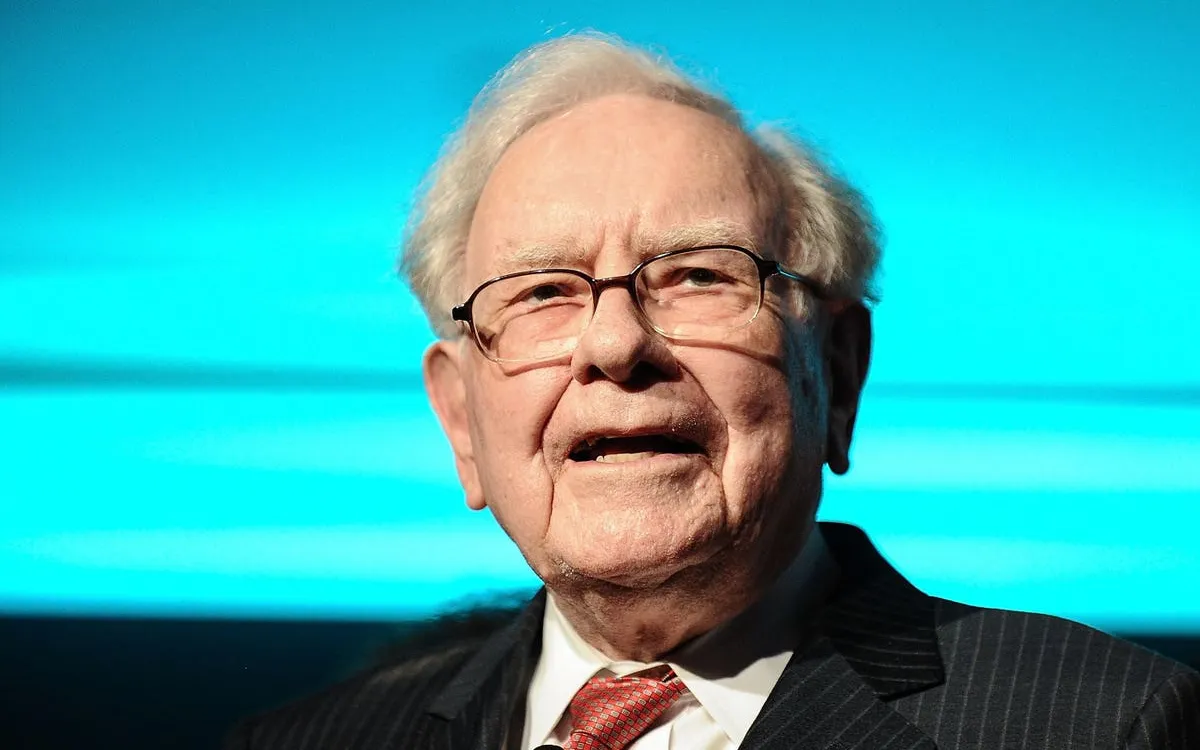
In a time when value investors are finding it increasingly challenging to discover bargains, the stock market has surprisingly continued to rise, disregarding concerns about tariffs and a sluggish job market. However, Warren Buffett's Berkshire Hathaway has identified a potential opportunity by purchasing shares in one of the year’s most significant disappointments for investors.
On Thursday afternoon, Berkshire Hathaway disclosed in an SEC filing that it acquired over 5 million shares of UnitedHealth Group during the second quarter, initiating a stake valued at an impressive $1.6 billion. This investment comes at a time when UnitedHealth has seen its stock plummet by 40% this year, making it the worst performer in the Dow Jones Industrial Average by a significant margin. The decline stems from a series of unfortunate events, including disappointing earnings, escalating healthcare costs, a sudden CEO transition, and an ongoing investigation by the Department of Justice.
The announcement of Buffett’s investment resulted in a 13% surge in UnitedHealth’s stock on Friday, indicating a renewed interest from the market. Berkshire Hathaway was not alone in this venture; other notable investors also recognized the potential in UnitedHealth. Hedge fund billionaire David Tepper's Appaloosa Management acquired 2.3 million shares in the same quarter, while Lone Pine Capital, founded by billionaire Stephen Mandel, purchased 1.7 million shares. Additionally, quantitative hedge funds such as Renaissance Technologies and Two Sigma also established new stakes in the company.
Washington, D.C.-based Marshfield Associates, which manages $7.5 billion in assets with a concentrated portfolio, added approximately 1 million shares of UnitedHealth, resulting in a position that comprises 4% of its total assets. Co-portfolio manager Elise Hoffmann expressed optimism regarding UnitedHealth's future, stating, “We think that most of their problems, if not all of them, are temporary in nature.” She emphasized that even when accounting for the current challenges, the valuation remains favorable.
Despite generating $400 billion in revenue and $15 billion in net profit in 2024, UnitedHealth has faced a barrage of negative headlines this year. In April, the company missed expectations for its first-quarter earnings and subsequently lowered its profit guidance, resulting in a staggering 22% selloff in a single day. The situation worsened with the resignation of CEO Andrew Witty in May, leading to further declines as the company suspended its annual forecast due to rising medical costs. Compounding these issues, a report revealed that the Department of Justice is investigating UnitedHealth for possible Medicare fraud, causing shares to drop another 28% within a brief three-day period.
Investors are hopeful that the market overreacted to the investigation-related selloff. Chris Niemczewski, managing principal and co-portfolio manager at Marshfield Associates, noted, “The healthcare industry is not short of examples of companies getting into trouble and paying big fines to the Justice Department.” He pointed out that such issues often do not lead to devastating long-term consequences.
Looking ahead, there are favorable tailwinds projected for insurers that could bolster UnitedHealth's earnings in the coming year. The Centers for Medicare & Medicaid Services announced an average reimbursement rate increase of 5.1% for Medicare Advantage plans next year, providing much-needed relief to an industry grappling with rising costs. Both Hoffmann and Niemczewski believe that the Justice Department is unlikely to impose severe sanctions on UnitedHealth’s Medicare program, given its critical role as the nation’s largest Medicare Advantage provider.
Currently, the market appears to undervalue UnitedHealth, pricing its stock at a mere 13 times earnings even after Friday's gains. This valuation is significantly lower compared to competitors such as Humana, Cigna, and CVS Health, which owns Aetna. Buffett's investment serves as a strong endorsement from an individual who possesses extensive knowledge of the insurance industry, even if the stake only represents a minor allocation of Berkshire’s substantial $344 billion cash reserve.
As Berkshire Hathaway navigates the complexities of the stock market, its investment in UnitedHealth underscores a belief in the company's potential for recovery and growth. The strategic acquisition highlights the importance of identifying value in challenging times, reinforcing the notion that even in a turbulent market, opportunities for savvy investors remain.